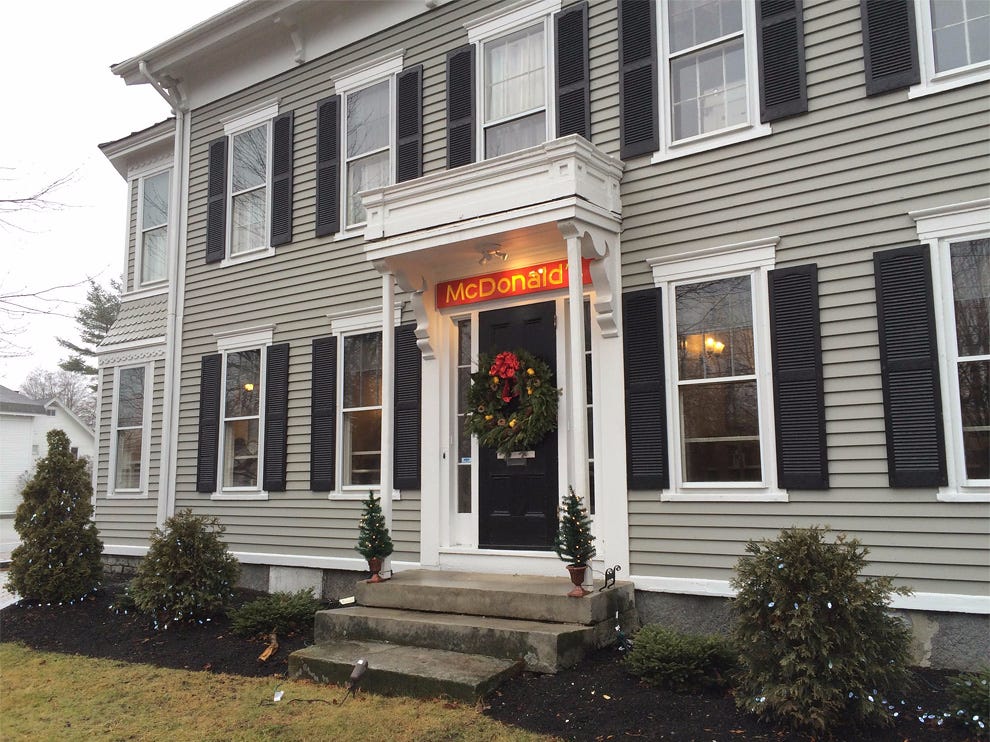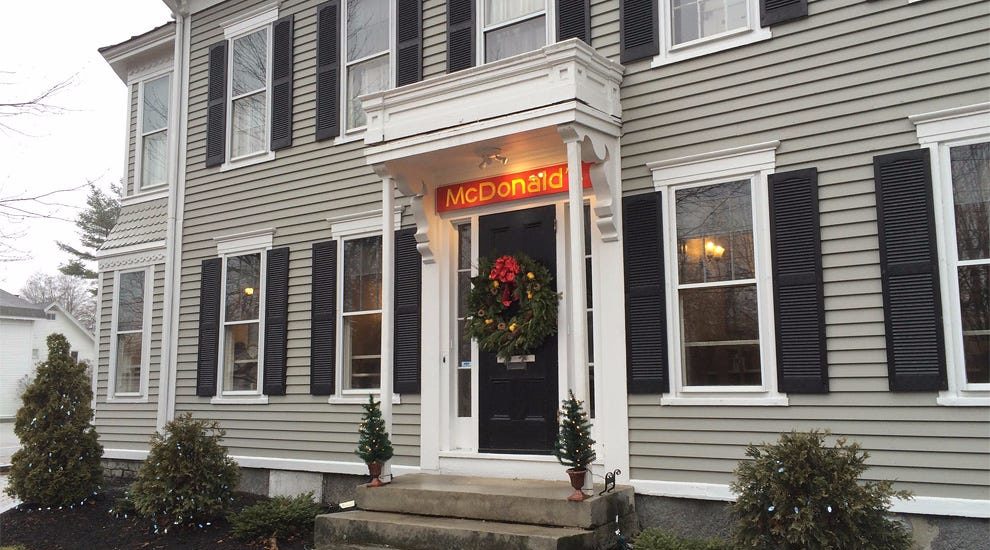Corporate Influx On Small Towns
Journal 7: New Media 200, by Claudio van Duijn
Franchise businesses and their influx on small rural towns
For Journal 7 I will be discussing my home town of Blue Hill Maine. Blue Hill was founded in 1762, a small town on the Maine cost dedicated to the production of lumber and firewood. Over the years Blue Hill has become an escape for many from the bustling cities and urban life. The town’s population is a combination of old names and people who have moved from urban cities to find solace in the wide-open spaces and coastal beauty. The thing that makes Blue Hill so special is its lack of large stores and corporate entities. This small-town feel is the heart of the town. Although Blue Hill has been a lowkey tourist destination for the last hundred years, the combination of technology and social media has brought more and more people to the small town every summer. Tourism allows the many local businesses to prosper, but on the other hand, it provides an opportunity for large corporations to take advantage. Recently in the last year both a Dunkin Donuts and a Family dollar where built, these unaesthetic buildings add a distracting and unpleasant view when driving through the town. I would like to address this issue as a technology that is having a drastic impact on my community.
The negative issue
The negative issue the town is dealing with is the recent addition of both a Dunkin Donuts and a Family Dollar. These buildings are ugly and distract from the small town charm people know and love. Now although this is not digital technology, the idea of franchises is a technology in itself. In the past places were to spread out and people would rather spend money at small family-owned businesses. With the advent of large scale consumerism, franchises have prospered, so in a way, this subject is linked to technology.
Banning this method of franchise and why
In order to keep the aesthetic and architectural integrity of the town, I would propose banning prefab commercial buildings. As well as ban the use of plastic cups, straws, and styrofoam containers. In order to build a franchise in the town, companies would be required to build to a very specific design code. The buildings would have to be approved by the community and not stand out from the surrounding architecture. Business signs would have to pass an inspection and would require a certain level of subtly. Essentially the codes would require these large scale franchise businesses to look and blend in like small-town entities.

- A McDonalds in Freeport, Maine. The town required the franchise to occupy an existing building for the sake of the small-town aesthetic.
How should the community decide what businesses are allowed?
Currently, Blue Hill like many small towns is run by a small board of elected officials. They have town meetings and take feedback from the community. The issue here is that many members of the community can not attend these meetings and so are never heard. Another problem with the system is that although you can speak up at a meeting, the decisions are made by the elected officials in the end. Essentially the system is a failed democracy, and decisions of this magnitude often go unchallenged. I would propose having such decisions voted on by the town’s population as a whole. This could be done using traditional methods, like the current structure of voting or new and improved methods such as internet polls, a mailing list, or an app.
Three methods for voting improvement:
1.) Have smaller decisions like whether to allow franchises into the town on the ballot. Require these decisions to be voted on by the population.
2.) Create a mail ballot that is sent to individuals homes as a way of democratically voting on such questions.
3.) Create an app or website for the town that allows people to vote on specific questions as well as voice concerns.
A many-to-many system
In my opinion, an app would be the best way to address this issue. Everyone who lived in Blue Hill could download the app and make an account using there home address and ID. This way everyone would have a convenient way to contribute to town decisions. This would also allow the elected officials an easy way to look at feedback from the town’s population. The app could also have a function for getting people’s signatures for issues they want to see on the next ballot. The app would essentially digitalize an individual’s voice in the community, allowing anyone to address an issue or future concern without leaving the comfort of there own home. I think this would increase action and response in the community overall, by giving everyone a voice in the decision process. By giving everyone a voice in the decisions that affect the town we are creating a many-to-many system, the people decide what is best for themselves and the community as a whole.

You must be logged in to post a comment.